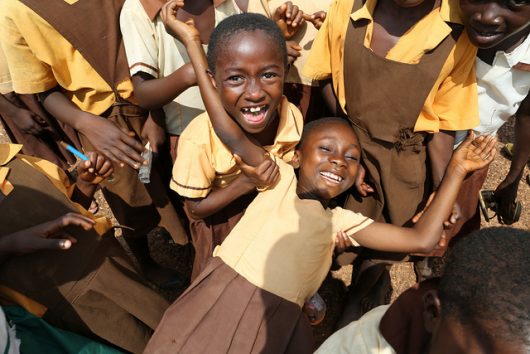Teacher Training Advances Education in Ghana

In recent years, education in Ghana has suffered due to untrained teachers, particularly in disadvantaged communities. In 2012 Ghana partnered with the Global Partnership for Education (GPE) to address the issue of equal access to education.
According to the World Bank, Ghana faces a disparity in the number of trained teachers between the disadvantaged districts of Northern Ghana and the relatively affluent southern districts. Part of Ghana’s partnership with GPE included a grant that funded the Untrained Teachers Diploma in Basic Education (UTDBE) program. Ghana’s government selected 8,000 teachers from impoverished communities to receive training during holidays. This allowed teachers to continue working while improving their skills during the summer and holiday breaks. The course began in 2012 and lasted four years.
The goal? To improve access to equal education in Ghana by closing the economic and educational gap between advantaged and disadvantaged communities.
The World Bank has evaluated UTDBE’s successes since the program’s conclusion in 2016. It has been noted that UTDBE-trained teachers showed skills and average scores comparable to teachers who had training before entering the classroom. The course is also more cost-effective than pre-service training. Having more trained teachers means that children in disadvantaged areas now have the same educational opportunities as those in more developed areas.
Last October, the World Bank partnered with GPE to fund a two-day training course for 120 teachers in Akwatia, Ghana that focused on health in schools. Sightsavers and Partnership for Child Development implemented the program. The goal of the project is to converge all school health programs on one platform. If the project succeeds, every child will have access to health services in school no matter their economic status.
The two-day training provides teachers basic skills for early identification of students with hearing, vision or intellectual disabilities. These skills will allow teachers to offer their students early referrals, which will give them the treatment they need to succeed in school. The project also aims to deworm all students in the Denkyenbuo District in Ghana and conduct eye screenings for both teachers and students.
– Rachel Cooper
Photo: Flickr
